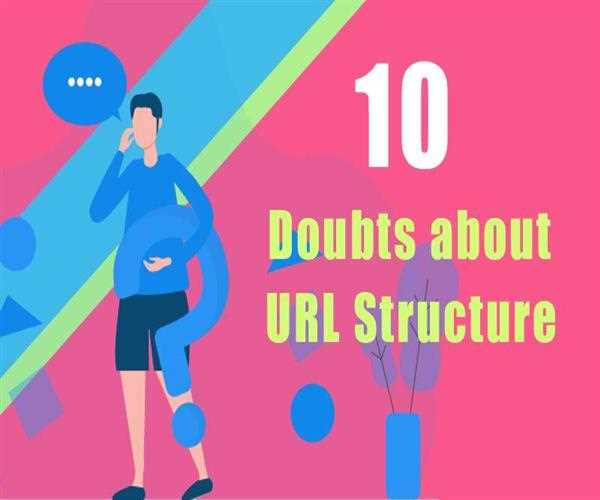
23-Sep-2021 , Updated on 9/23/2021 7:09:17 AM
Ten Doubts about URL Structure You Should Clarify
It might seem less important than the title and heading elements but URLs can be an effective tool for achieving SEO success. There’s no vivid answer to whether keywords in the URL structure are used for ranking.
During 2010, Google addressed keywords in the pathname versus keywords in the filename. Also, there is no multi-hyphen algorithm that will actually penalize multiple hyphens, doubling down on the approach of looking at it from a user perspective. Thereby they wanted to stress was that the user experience part that users would click on in the search engine results pages (SERPs) was more crucial than any ranking factor-related benefit.
During 2011, like keywords in URLs, keywords in domains were also ranking factors. Also, they were downplayed in terms of how important they were. Their ranking factor role in favor of other factors related to user experience and marketing, which is similar to how was downplayed keyword in the URL.
During 2016, Google acknowledged that keywords in the URL were a ranking factor. However, they minimized the importance of that as a ranking factor, describing its influence as being very small.
During 2017, the Keywords in the URL structure are overrated and continued to minimize the importance of keywords in the URL as a ranking factor.
As recently as 2018, they continued to downplay keywords in URL as a ranking factor, saying that they’re not even seen by users. Thereby Keywords in a URL may be a ranking factor but judging from Googler statements, it’s a very minor one.
Bare URL Links
There’s a novel idea around that if someone links to your site with just the link, Google will at least use the keywords in the URL as anchor text, which will assist that site rank better for that anchor text. This type of link is sometimes called a bared link. It’s called because it is a link in the form of a URL instead of hidden in an anchor text.
Do Keywords in a URL Increase Clicks From SERPS?
There’s an old SEO idea that says using keywords in the URL will help stimulate a higher click-through rate (CTR) from the search results pages (SERPs). This may have been true in the past. Actually it’s less true today, specifically for sites that use breadcrumb navigation and/or breadcrumb navigation structured data. Moreover, Google is generally instead using the category name in the search results for sites that feature breadcrumb navigation or breadcrumb navigation structured data.
We understand that for sites that don’t use breadcrumb navigation or the breadcrumb structured data, Google primarily does display the URLs with keywords in them. But Google does not highlight them. If Google did highlight the keywords in the URL, it may have assisted to draw the eye to the listing but this is not the case.
Specific Uses of Keywords in a URL
Apart from a minor possible ranking factor weight, there are vivid merits to site visitors for keywords in a URL. Keywords in the URL can immensely assist users to understand what a page is about.
Moreover, those keywords might not always show up in the SERPs, they will illustrate when linked as a bare URL structure. So when in doubt, optimize for the user because Google always suggests making pages useful for users. This actually tends to align with the kinds of web pages Google wants to rank.
Actively Standardize Your URLs in Lowercase
It’s the best idea to standardize what your URLs look like. URLs are generally written in the lowercase dot-com as opposed to mixed case Dot-Net or in all uppercase DOT-IN. It’s good to do that as well if only since that’s what users expect and it is simpler to read than all caps. Thereby keeping your URLs standardized will assist prevent linking errors within the site and from outside of the site, too.
Better to Use Hyphens, Not Underscores
You can always use hyphens (-) and not underscores (_) since underscores cannot be seen when the URL is published as a bare link.
Good to Use Accurate Keywords in Category URL Structure
By using a less relevant keyword as the category name is a common mistake that comes from selecting the keyword with the most traffic. In some cases, the highest traffic keyword isn’t necessarily what the pages in the category are about. Choose category names that primarily describe what the pages contained within it are about. So when in doubt, select the words that are most relevant to users who are searching for the content or products that are contained within those apt categories.
URLs for Best SEO Purposes
URLs are a quality way to signal to a potential site visitor what a page is about. The proper use of URLs can assist improve click-through rates wherever the links are shared.
Thereby keeping URLs shorter makes them user-friendly and easier to share. Web pages that make it simple to share are assisting users to make the pages familiar.
One should not underestimate the power of familiarity for ranking purposes since some of what search engines do is to show users what the users are expecting to see. The URL is an overlooked part of the SEO equation but it greatly contributes a deal to assisting your pages to rank well.

Employee
I am a Digital Marketing Executive at GegoSoft Technology. I have been working for 6 months. I know how to grow website traffic and ranking. I am doing social media marketing, Backlink work, and so on.
Join Our Newsletter
Subscribe to our newsletter to receive emails about new views posts, releases and updates.
Copyright 2010 - 2026 MindStick Software Pvt. Ltd. All Rights Reserved Privacy Policy | Terms & Conditions | Cookie Policy